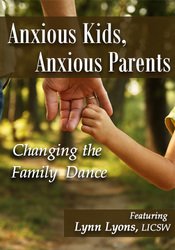
Anxiety can be a very persistent master. When it moves into families, it takes over daily routines, schoolwork, and recreation. To make matters worse, the things adults (including many therapists and school staff) do to help anxious children can actually make the anxiety stronger. Fortunately, research shows that what we teach children about risk, danger, uncertainty, and problem-solving makes a huge difference in whether they go on to become anxious or depressed teens and adults. In this workshop, you’ll explore concrete counterintuitive strategies that normalize worry for families, including how to help children, teens, and their families.
| File type | File name | Number of pages | |
|---|---|---|---|
| Handouts (8.71 MB) | 16 Pages | Available after Purchase |

Lynn Lyons, LICSW, is an internationally recognized psychotherapist, author, and speaker with a special interest in interrupting the generational patterns of anxiety in families. Her skill-based approach to anxiety focuses on the need to teach families about HOW anxiety works and what families can do to pull members out of the powerful “anxiety cult” that demands obedience to its need for certainty and comfort. Lynn’s approach uses humor, playful connection, and a constant focus on DOING, an umbrella strategy she has taught to thousands of professionals and families.
Lynn is the co-author with Reid Wilson of Anxious Kids, Anxious Parents and the companion book for kids Playing with Anxiety: Casey’s Guide for Teens and Kids. She is the author of Using Hypnosis with Children: Creating and Delivering Effective Interventions and has two DVD programs for parents and children.
She maintains a private practice in Concord, New Hampshire where she sees families whenever she’s not on the road teaching.
Speaker Disclosures:
Financial: Lynn Lyons maintains a private practice and receives royalties as a published author. She receives compensation as an international presenter. Lynn Lyons receives a speaking honorarium, recording, and book royalties from PESI, Inc. She has no relevant financial relationships with ineligible organizations.
Non-financial: Lynn Lyons is a contributing author for Psychotherapy Networker.
Please wait ...